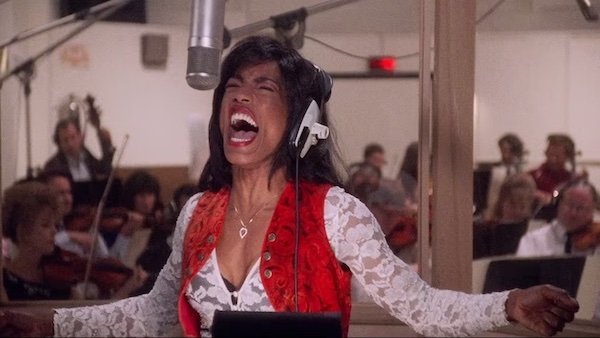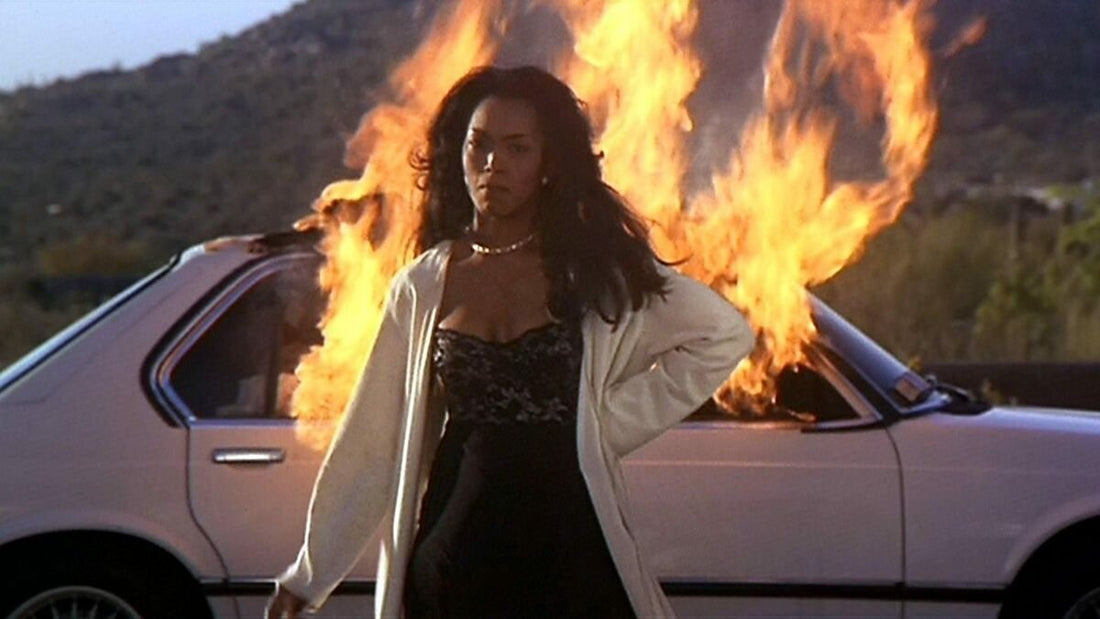The impact of Angela Bassett is immeasurable, Oscars or not. But it all begins with Black girl magic, breaking down stereotypes and paving the way for girls like Wessley Edmonds, who see themselves in Bassett’s journey – and understand strength in togetherness.
My Auntie Bobbie used to tell me about this thing called Black girl magic. I remember her telling me about it as if it was some untold secret; something all Black women and girls knew about, but safeguarded within themselves. As a little girl, I pictured a hidden treasure that was stowed away long ago and waited to awaken. My Black girl magic waited for me to find it and explore its enchanted elements. Maybe it was buried in my backyard, or maybe I’d have to go on an expedition to excavate it from some ancient world? My imagination ran away with me, as it always does when you’re young and free.
But at that age, I’d never comprehend the fact that my Black girl magic was something that people would try to take away from me, use, or claim for themselves. It was – and is – valuable beyond measure. It’s the thing that proves we Black girls contain multitudes. Unlike the stereotypes that dominate the media about our identities – the sexually unrestrained Jezebel or the loud, angry Sapphire – it proves that we cannot be put in a box, or confined to a label. This is an ode to the women who have deconstructed and burned that box to the ground, who paved the way for girls like me, and who have taught me the meaning of my magic, my Black girl magic…Ms. Angela Bassett, this one’s for you.
Angela Bassett exists within an industry that so often fails to portray Black women in a multidimensional light. Yet in each of her roles, Bassett demonstrates the evolution of Black girl magic. She has long been revealing the Black woman who rarely gets to be seen on screen: the one who gets her groove back midway through life, the one who keeps on rollin’ like the Proud Mary she is, and the one who is romanced to the serenade of SWV’s ‘All Night Long.’
As Stella in How Stella Got Her Groove Back, Bassett learns to dance through life again. Leaving the capitalist grind filled with fluorescent lighted offices and big, chunky ‘90s computers, she goes on her own expedition to a far-off land. It’s spontaneous and unplanned, but one thing’s certain: Stella’s in search of her magic. She had it once, and she wants to reconnect with it again. And when she hits that dance floor in her ecru nightgown and puts her hands in the air while swaying side to side to the beat of the groove, she finds it.
Taking on a long history of Black women being mistreated and used for their magic, Bassett’s performance of the fiery performer, Tina Turner, pays homage to the resilience of Black women everywhere. What’s Love Got to Do with it is a salute to the adversities of Lady Day and Nina to the Queen of Soul. The extraction and use of our talent, beauty, and strength for someone else’s material gain (usually a man’s) is a tale as old as time. But in the words of Tina herself: “I've been takin' on a new direction/But I have to say/ I've been thinkin' about my own protection.” Bassett’s representation of a woman who refuses to be the victim and takes back her magic by “thinkin’ about her own protection,” teaches us that what’s rightfully ours is never truly lost. Our magic isn’t something we find outside ourselves; it’s always been there inside of us. And sometimes, the sisterhood that surrounds us helps us recognize this, like the women of Waiting to Exhale.

Maybe I’m a little biased, or maybe I’m just a sucker for women supporting women, but countless Black women know Waiting to Exhale is a breath of fresh air. In what universe, really, would someone make a film about the mundane lives of four Black women and their search for love and fulfillment? And in the ‘90s? To this day, it is referenced by women who crave a reflection of themselves on screen, thinking to ourselves, “Why can’t our lives be a movie? Why can’t we walk down the street, drive with the top down, or walk away out of the frame to a cinematic soundtrack featuring Ms. Lauryn Hill or Roberta Flack?” This film demonstrates of our right to be romanced by a partner who treats us with respect; a person who worships our magic without strings or preconceived notions. Unlike the mainstream ‘90s romantic cinema of the time, Waiting to Exhale shows the undoing of a taboo on Black intimacy by exploring Black women’s right to feel sexual without guilt or shame.
But what forms the foundation of this film is its representation of Black women, who conjure a community in a world that tries to isolate and deprive them of sisterhood. We’re stronger together, when we support and uplift each other through the trials of life: divorce, heartbreak, toxic relationships, and sexuality. When Wesley Snipes has the audacity to compliment Bassett’s character, Bernie, with the words, “You’re a fighter,” Black girls chuckle to themselves and think “Child, please, I could’ve told you that.’ We know we’re brave, and fight the battles that hit us in the face every day. We carry ourselves the way Bernie, Tina, and Stella do: with resilience in our left pocket, and grace in our right. That’s our Black girl magic.
Ms. Bassett, you may not have won an award in Dolby Theatre this year, but not too long ago you won the hearts of so many Black women, including mine, for portraying the underrepresented and complex identity of the woman I hope to become one day. In the words you so eloquently spoke 28 years ago, “Girlfriend, here’s to peace of mind and all the happiness that your heart and hand can hold. ‘Cause lord knows you deserve it.” And ain’t that the truth.
For the little girl with braids who craves a glimpse of the woman she’ll grow up to be. For the women that pave the way for her. For us Black girls and the magic we hold within.

